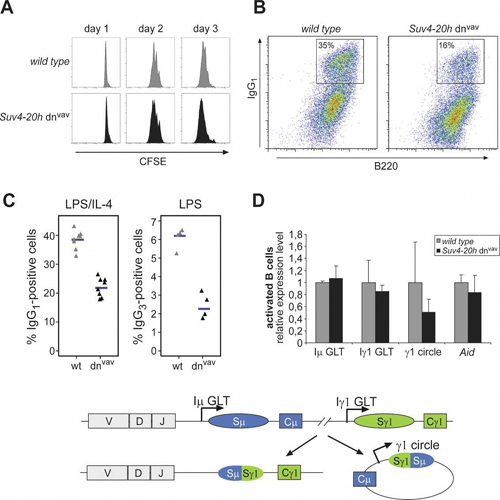A chromatin-wide transition to H4K20 monomethylation impairs genome integrity and programmed DNA rearrangements in the mouse
30-May-2008
H4K20 methylation is a broad chromatin modification that has been linked with diverse epigenetic functions. Several enzymes target H4K20 methylation, consistent with distinct mono-, di-, and trimethylation states controlling different biological outputs. To analyze the roles of H4K20 methylation states, we generated conditional null alleles for the two Suv4-20h histone methyltransferase (HMTase) genes in the mouse. Suv4-20h-double-null (dn) mice are perinatally lethal and have lost nearly all H4K20me3 and H4K20me2 states. The genome-wide transition to an H4K20me1 state results in increased sensitivity to damaging stress, since Suv4-20h-dn chromatin is less efficient for DNA double-strand break (DSB) repair and prone to chromosomal aberrations. Notably, Suv4-20h-dn B cells are defective in immunoglobulin class-switch recombination, and Suv4-20h-dn deficiency impairs the stem cell pool of lymphoid progenitors. Thus, conversion to an H4K20me1 state results in compromised chromatin that is insufficient to protect genome integrity and to process a DNA-rearranging differentiation program in the mouse.











